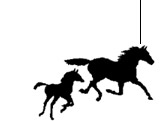|
Concerns regarding Carry the Kettle
Letter to Carry the Kettle First Nations from CHDC
Dear Chief and Councilmen,
The Canadian Horse Defence Coalition has serious concerns with Carry the Kettle First Nations' potential purchase of Natural Valley Farms/Natural Meat Company.
Attached is a report we've compiled noting our concerns. The report exposes numerous systemic problems with NVF/NMC.
We feel that your community has not been provided with full disclosure of important information on the facility that it is being asked to purchase. The intention of this report is to provide you with factual evidence we have collected on the lasting environmental devastation you have been asked to take on, as well as statements made by one of the slaughterhouse's investors and directors during a radio interview on July 31, 2009 where he stated: "horse slaughter never brought a single minute of profitability to the company." We fear that you are being given the same empty promises these investors were given.
Also included is a letter from the RCMP which states that violations did occur at the facility but were not being pursued, as the facility has been closed. Will those violations now fall to you should you choose to purchase the facility?
Most importantly, we must point out the greatest omission made to you by Velda and Mr. Van-Damme. New European Union regulations have just been passed which will require that all imported slaughter-bound horses be held for six months, in an attempt to rid their bodies of the pharmaceuticals that they are normally given throughout their lives. Only horses that arrive with thorough medical records can bypass this six month quarantine. There is no current system in place in Canada for horses that tracks these medical records. The vast majority of horses arrive from auctions where horses' identities are lost and none carry medical records. Most horses will simply not be useable, as they have been given phenybutazone, a known carcinogen, which is banned for use for meat animals, and there is no way of knowing which horses have received this common anti-inflammatory drug. Horses are also commonly given de-worming agents, which again are prohibited for use in meat animals. There will be no way of knowing which horses were administered these drugs, so they will all have to be held for a minimum of six months before going to slaughter.
The cost burden of feeding horses for six months is enormous. For 750 horses and the current shortage of hay and therefore high prices averaging $6/bale and each horse consuming approximately 10 bales per month, you can expect ongoing monthly feed costs of $45,000. This is an enormous expense that has conveniently not been conveyed to you.
Our organization's focus first and foremost is the welfare of the horses and how it was so horribly compromised at NVF. Our findings became the focus of a CBC National expose called No Country for Horses, which garnered an incredible viewer response with nearly all in support of an immediate halt to the killing of horses at NVF. This fits with Canadian views as an Ipsos-Reid poll taken in 2004, long before the cruelties of the industry were even exposed, revealed that 2/3 of Canadians do not believe in the slaughter of Canadian horses for human consumption. Footage we collected at the facility was reviewed by Dr. Nicholas Dodman, Section Head and Program Director of the Animal Behaviour Department of Clinical Sciences at Tufts University's Cummings' School of Veterinary Medicine. Dr. Dodman concluded that up to 30% of the horses at NVF were not rendered unconscious before butchering and literally died piece by piece. This is representative of the horse slaughter industry as the stunning of horses is incredibly difficult. Horses are flight animals, and are quicker and more mobile than cattle. They have long, muscular necks, are very alert, so typically move their heads quickly, becoming a moving target. Their brains are small compared to the size of their heads, so an accurate hit is very difficult to achieve. Add to this the improper, badly-converted cattle-stun box, and the process is all but impossible.
Our organization recorded violations at NVF in all of the following Regulations. At thousands of dollars per incident, the total cost of these penalties would be in the millions:
US Commercial Transportation of Equines to Slaughter Letter of Intent with Canada
Federal Health of Animals Act (Sick, Pregnant and Unfit Animals; Prohibition of Overcrowding; Segregation; and Protection of Animals from Injury or Sickness)
Meat Inspection Act
Livestock Inspection and Transportation Regulations, Province of Saskatchewan
As the facility has no plans to alter its killing equipment or practices, you will be buying this legacy of cruelty, environmental disaster and economic failure.
Please, consider your decision carefully and say No to Velda and Mr. VanDamme.
Sincerely,
Canadian Horse Defence Coalition
"Help us lead Canada's horses away from barbarism . .
and into the protected pastures of a civilized
nation."
|


